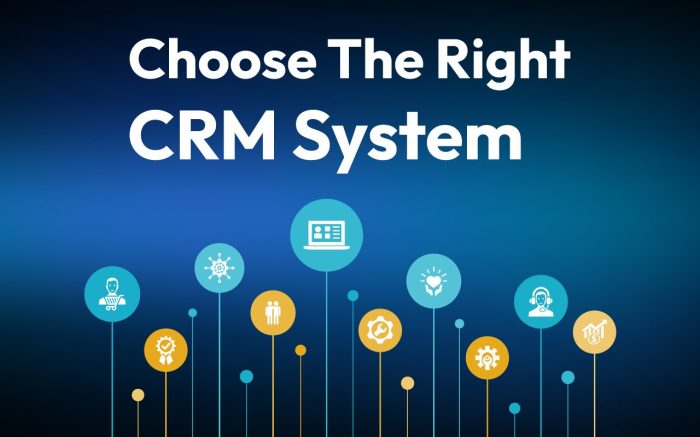CRM Online
Unleashing the Power of CRM Online: Transforming Business Operations and Customer Relationships
In today’s rapidly evolving business landscape, maintaining strong customer relationships and optimizing operational efficiency are essential for success. Enter CRM Online – a dynamic solution that empowers businesses to centralize customer data, streamline processes, and drive growth in the digital age. In this comprehensive guide, we’ll explore the ins and outs of CRM Online, its benefits, key features, implementation strategies, and how it’s reshaping the way businesses interact with their customers.
Understanding CRM Online
CRM Online, short for Customer Relationship Management Online, is a cloud-based platform designed to help businesses manage interactions with customers and prospects. Unlike traditional CRM systems installed on local servers, CRM Online operates entirely over the internet, providing users with anytime, anywhere access to critical customer data and insights.
Key Features of CRM Online
1. Centralized Customer Database:
CRM Online offers businesses a centralized repository to store and manage customer information, including contact details, purchase history, preferences, and communication logs. This centralized database ensures that all team members have access to up-to-date customer data, enabling personalized interactions and targeted marketing campaigns.
2. Contact Management:
Efficient contact management is crucial for building and nurturing customer relationships. With CRM Online, businesses can organize contacts, segment audiences based on various criteria, and track interactions across multiple channels. Advanced search and filtering capabilities allow users to identify high-potential leads and engage with them proactively.
3. Sales Pipeline Tracking:
CRM Online provides businesses with a clear view of their sales pipeline, allowing them to track deals through each stage of the sales process. Sales representatives can monitor opportunities, forecast revenue, and prioritize activities to close deals more effectively. Real-time updates ensure that everyone stays informed about the status of ongoing deals.
4. Task and Activity Management:
Effective task and activity management are essential for keeping teams organized and productive. CRM Online allows users to create tasks, set reminders, and track activities related to sales, marketing, and customer service. Automated notifications ensure that important deadlines are met and follow-ups are conducted in a timely manner.
5. Reporting and Analytics:
Data-driven insights play a crucial role in optimizing business performance and decision-making. CRM Online offers robust reporting and analytics tools that allow users to analyze key metrics, track trends, and measure the effectiveness of marketing campaigns. Customizable dashboards provide stakeholders with real-time visibility into critical business metrics.
Benefits of CRM Online
1. Accessibility and Mobility:
One of the primary advantages of CRM Online is its accessibility and mobility. Users can access the platform from any internet-enabled device, including laptops, tablets, and smartphones. This flexibility enables remote work, field sales, and on-the-go collaboration, empowering teams to stay connected and productive from anywhere.
2. Scalability and Flexibility:
CRM Online offers scalability and flexibility, allowing businesses to adapt and grow without constraints. With cloud-based deployment, users can easily scale their operations, add new users, and access additional features as their needs evolve. This scalability ensures that the CRM system can accommodate the changing demands of a growing business.
3. Cost-Effectiveness:
Cloud-based CRM solutions like CRM Online offer a cost-effective alternative to traditional on-premises systems. Businesses can avoid hefty upfront investments in hardware and software licenses, as well as ongoing maintenance and upgrade costs. Instead, they pay a monthly subscription fee based on usage, making CRM Online accessible to businesses of all sizes.
4. Enhanced Security and Data Protection:
Security is a top priority for businesses when it comes to managing customer data. CRM Online providers employ robust security measures, including data encryption, multi-factor authentication, and regular security audits, to protect sensitive information from unauthorized access and cyber threats. Data is stored securely in the cloud, with built-in redundancy and disaster recovery capabilities.
5. Integration and Customization:
CRM Online seamlessly integrates with other business applications and tools, such as email marketing platforms, accounting software, and productivity suites. This integration enables streamlined workflows, data sharing, and cross-departmental collaboration. Additionally, CRM Online is highly customizable, allowing businesses to tailor the platform to their specific needs and workflows.
Best Practices for Implementing CRM Online
1. Define Clear Objectives and Requirements:
Before implementing CRM Online, businesses should define clear objectives, identify key requirements, and align the solution with their business goals and processes. Conducting a thorough needs analysis and involving stakeholders early in the process can help ensure a successful implementation.
2. Provide Comprehensive Training and Support:
Invest in comprehensive training programs to ensure that users are proficient in using CRM Online effectively. Offer ongoing support and resources to address user questions, troubleshoot issues, and optimize usage for maximum impact.
3. Customize and Configure to Fit Your Business Needs:
Take advantage of customization and configuration options to tailor CRM Online to your unique business needs and workflows. Define custom fields, layouts, and workflows to reflect your business processes and maximize productivity.
4. Foster User Adoption and Engagement:
Encourage user adoption and engagement by highlighting the benefits of CRM Online and demonstrating its value in day-to-day operations. Solicit feedback from users, address concerns, and celebrate successes to keep teams motivated and invested in the platform.
5. Continuously Monitor and Evaluate Performance:
Regularly monitor key performance indicators (KPIs), user feedback, and system usage data to evaluate the effectiveness of CRM Online. Identify areas for improvement, implement enhancements, and iterate on processes to ensure that the software continues to meet evolving business needs and expectations.
Conclusion
In conclusion, CRM Online represents a game-changer for businesses seeking to elevate customer relationships, streamline operations, and drive growth in today’s digital age. By leveraging the power of cloud technology, businesses can centralize customer data, improve collaboration, and gain actionable insights to make informed decisions and deliver exceptional customer experiences. Whether you’re a small startup or a global enterprise, CRM Online offers the flexibility, scalability, and agility needed to thrive in a competitive marketplace.

